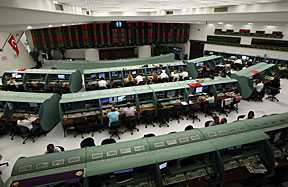Turkey’s economy grew at an eye-watering 11% pace in the first quarter, outshining China and confirming Turkey as a regional rising tiger.
The official year-to-year growth figure, announced Thursday, easily beat market expectations, at a time when many of Turkey’s neighbors in Europe and the Middle East struggle with political turmoil and economic crises.
Turkey’s good fortune stands in stark contrast to most neighbors in the European Union, in particular Greece, whose leader last week called on his citizens to emulate the success of his country’s old rival.
Its rapid growth swept Prime Minister Recep Tayyip Erdogan re-election June 12, solidifying his position at the head of the region’s emerging political and economic power.
But in what is fast emerging as a paradox, foreign investors are in no hurry to snap up Turkish assets.
Markets are concerned about what the government plans to do to control a ballooning current-account deficit above 8% of gross domestic product and rising—an imbalance seen as a sign of overheating, despite relatively benign inflation numbers.
Turkey’s trade deficit for May doubled from the year-earlier period, adding to the current-account imbalance. Imports to Turkey expanded by 42.6%, almost four times as fast as its exports at 11.7%, Turkstat, the state statistics agency said.
In a sign of that investor nervousness, the Istanbul Stock Exchange has been one of the worst performers among emerging markets this year, down by 9.75% since early May.
Currency traders, meanwhile, have been selling off the lira, which has fallen nearly 19% since November.
Turkey faces other issues, too. It produces minimal quantities of oil and gas. Meanwhile, manufacturers face high costs relative to competitors, economists say, and so tend to use imported semi-finished goods rather than produce their own components. As a result, as Turkey produces more, it imports more.
via Turkish Economy Expands 11%, But Investors Point to Pitfalls – WSJ.com.




